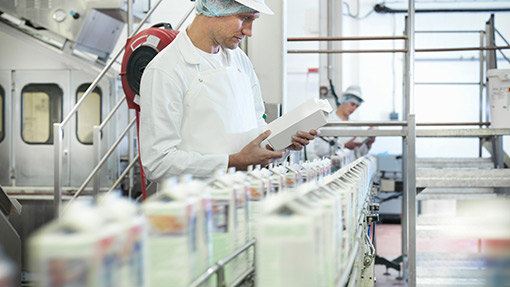EU asked for more dairy aid to counter Russian ban

Farm leaders and politicians have pushed the EU to give extra aid to producers suffering from Russia’s ban on Western food imports.
British members of the European Parliament (MEPs) and farming unions have been in Brussels lobbying the commission to enhance emergency measures already announced to help the dairy sector.
See also: Five charts that explain the milk price crash
With farmgate prices plummeting across Europe, agriculture commissioner Dacian Ciolos last week opened a scheme called Private Storage Aid (PSA), which pays dairy companies to keep butter, skimmed milk powder and some cheeses in store and off the market.
Mr Ciolos attended a meeting of European farming union Copa-Cogeca on Thursday, where he was pushed to help the dairy sector further.
Copa-Cogeca milk working party chair and Welsh farmer Mansel Raymond said the Commission’s early actions were very welcome but more help was needed.
He said prices in some of the Baltic states had fallen below 20c/litre (16p/litre) already.
“Everybody is looking for market stabilisation,” he said. “We have got to put a base in the market.”
Copa-Cogeca’s demands to the commissioner included:
- Help gaining access to new markets for EU dairy products
- More money spent on the promotion of European dairy products abroad
- A higher intervention price at which governments can buy up excess butter and milk powder. The intervention price currently equates to roughly 17p/litre or 60% of average European cost-of-production.
Mr Raymond said markets needed to stay free but the price must not be driven down to the lowest possible point.
The NFU’s dairy board chairman Rob Harrison was also in Brussels to encourage the commission to extend PSA to all cheeses, to stretch the storage period up to a year and to explore ways of releasing products from the scheme without disrupting the market.
He said the commission seemed keen to take action on the effects of the Russia ban but not the already weak market, which was under pressure from bumper milk production.
“They are willing to put things in place to support markets based on what has happened in Russia and provide promotion that then buys processors and co-ops time to look for new markets,” he said.
“They are not particularly looking to support the market, which was weakening anyway.”
In Thursday’s meeting of the European Parliament’s agriculture committee, dairy was the main focus with British and Irish politicians demanding the commission bring in further measures.
Northern Irish MEP Jim Nicholson asked if the commission would be able to move the date of milk quota abolition, scheduled for the end March 2015, as a way of tightening supplies.
Irish MEP Mairead McGuinness said the superlevy fine should be scrapped for the 2014-15 milk year because farmers were hurting enough already.
The committee’s general agreement was that because Russia’s ban was caused by politics and not agriculture, farmers should not have to pay for the consequences.
The commission has the power to reduce direct payments across Europe to pay compensation to crisis-hit producers.
After an emergency meeting of the EU’s farming ministers, commissioner Ciolos announced that at least some of the funds for extra support would come from outside the CAP.
